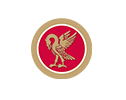Why Study Maths?
Students are exposed to some of the most powerful mathematical tools ever created. Calculus, the mathematical study of continuous change, which underpins everything from meteorology to the rise and fall of the stock markets; Statistics, in which pupils develop the skills required to interpret information and prepare themselves for a world of ‘big data’; Mechanics, in which pupils engage with the mathematics governing the laws of Newtonian physics and the motion of objects in our physical world.
These topics, along with many more, will be covered with a rigour and level of detail that far outstrips what pupils have met at GCSE. Mathematics pupils at King’s can expect to be stretched, to be challenged, to work exceptionally hard and to leave at the end of Upper Sixth with a greater understanding of how the world around them works.
It All Adds Up...
There is also the Sixth Form mathematics club, open to all, but aimed predominantly at those looking to study the subject at university. We also run a specialist course preparing any pupils who might be required to sit the MAT test, which is an admissions test used by institutions such as Oxford University for their undergraduate mathematics courses.
Over 40% of A-level mathematics pupils are awarded an A grade and further mathematics not only acts as a discriminator, but also extends the knowledge of those applying for higher education courses. Some universities, for example Manchester, give a lower offer if further mathematics is taken, while others, such as Oxford, require pupils to study the further mathematics topics before they begin their course.
The Sixth Form mathematics society, the Jacobians, is open to all A-level mathematics pupils. We meet every half term and discuss topics beyond the reaches of the syllabus. Recent talks have included ‘The Language of Mathematics’, a look at different number bases and their possible pros and cons for society; ‘The Art of the Infinite’, in which we discussed the concept of infinity and the notion of cardinality; and ‘Mathematics B.C. (before calculators)’, in which pupils gained hands-on experience with the slide rule.
Further Mathematics
Further Mathematics is a subject for enthusiasts who will find the basic A-level relatively straightforward. Since the inception of the National Network giving access to further mathematics for all pupils, most of the leading universities are now demanding further mathematics at some level for those wanting to study mathematics or mathematics-related degrees.
Half the content of further mathematics is prescribed and the rest is decided by the exam board. At present further mathematics pupils study the two compulsory core mathematics units, the Decision 1 unit and the Further Mechanics 1 unit.

